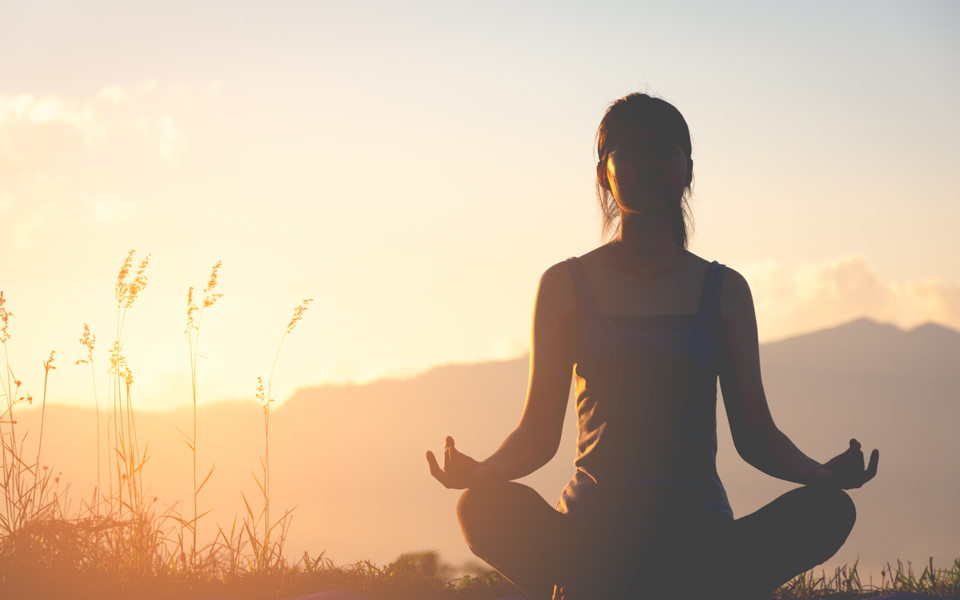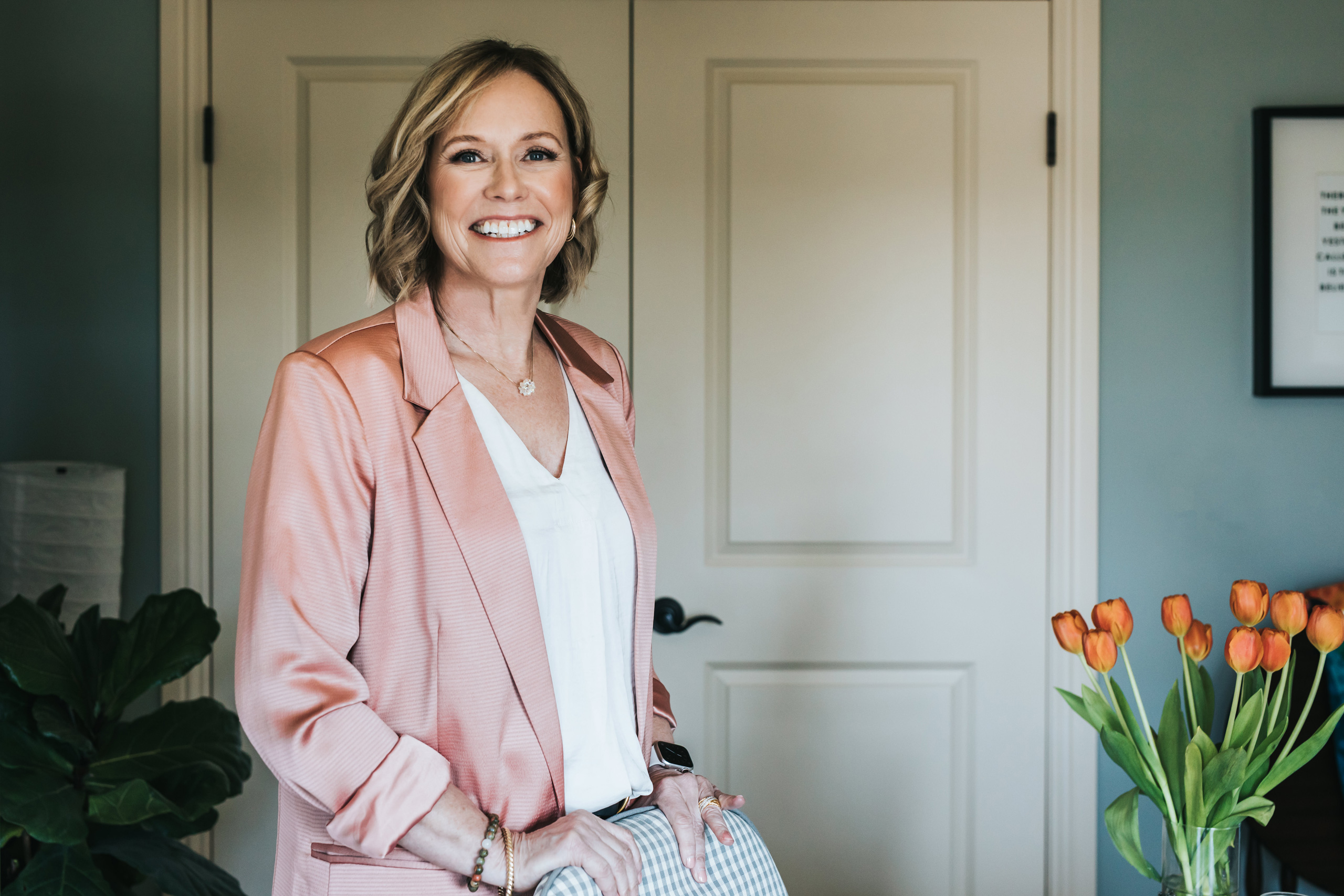5 Mindfulness Tips to Befriend Your Fear and Anxiety
While we all want to live happier, healthier, and more fulfilling lives, an increasing number of people are feeling fearful, anxious and stressed. The good news is that with the right tools and mindset, it is possible to feel more peaceful and use our stress to inspire us to grow and evolve rather than being stuck in a vicious cycle.
Fear, anxiety, stress, and worry are terms that are often used interchangeably to describe the uncomfortable experience, and feelings triggered when our fight/flight/freeze response of the autonomic nervous system is activated.
It's helpful to see fear for what it is - the physiological fight/flight/freeze response that occurs in response to an actual threat to survival. This response is valuable and necessary.
In comparison, anxiety is the physiological response that arises from a perceived threat from our thoughts or the stories we tell ourselves. In other words, we are not in actual danger, but our minds and bodies don’t realize that.
In her book The Fear Cure, Dr. Lissa Rankin, M.D. explains the difference between genuine and false fears.
True fear is a natural survival mechanism, here to protect you, and false fear is an important teaching too, here to enlighten you.
Many people view fear and anxiety as a disease and harmful, leaving them feeling like victims in increasingly stressful lives with much out of their control.
Wendy Suzuki, neuroscientist and author of Good Anxiety: Harnessing the Power of the Most Misunderstood Emotion, challenges the belief that anxiety is bad. She explains that the emotion of anxiety is not a disease; it is a normal human emotion that’s part of life.
The problem is not that we have anxiety; the issue is that we’ve turned up the volume on anxiety without the counterbalance of our nervous system that shifts into rest and digest. Wendy Suzuki argues that we focus too much on the fight/flight/freeze and not enough on the practices and mindsets that promote rest and digest.
Here are 5 mindfulness tips to work with your fear and anxiety:
1. Practice the physiological sigh.
Whether our response is to a real or perceived threat, the physiological response is the same. The quickest way to shift out of flight/fight or freeze that occurs from either fear or anxiety is what Dr. Andrew Huberman explains as the physiological sigh.
reduce anxiety with sighs
In this short video, he explains why it’s so effective and how to do it.
2. Begin a simple daily meditation practice.
Meditation and mindfulness are powerful practices that enable us to calm our bodies, clear our minds, and connect with a deeper wisdom inside ourselves. These practices cultivate a way of living that allows us to witness our thoughts, be kind to ourselves, and develop more nourishing, less anxiety-producing stories.
Simple, short practices enable us to turn the dial on practices that shift us from the fear and anxiety response to rest and digestion.
In the post, With So Many Choices, What Is The Best Meditation For Me? there are several free resources and tips for setting up a simple, short meditation practice.
3. Shift your mindset and view fear and anxiety as your teacher.
Being with our fear and anxiety in a way that supports healing, growth, and transformation rather than disease, suffering, and failure to flourish begins with shifting our mindset and befriending our fear and anxiety.
Our beliefs about fear and anxiety significantly impact whether fear helps us grow or contributes to disease and illness.
If you begin to pay attention, you’ll notice that you’re likely fearful of having fear. When we shift our mindset about fear and anxiety and understand that there’s wisdom in this emotion, we can turn it into our superpower.
Research has demonstrated that we can use anxiety for motivation, productivity, creativity, and making necessary life changes that support our well-being. Fear and anxiety aren’t “bad,” but being stuck in the fight/flight/freeze response is the problem when we don’t have the tools to build resilience and shift out of the stress response.
4. Observe your core fear as determined by your Enneagram of personality.
In addition to our beliefs about fear and anxiety, our core personality structure plays a significant role in how we experience and respond to fear and anxiety. The Enneagram of personality highlights how each of the nine distinct personality types has a core fear contributing to our anxiety.
These core fears at one time kept us safe but, over time, began to suffocate us and prevent us from growing into the best version of ourselves.
Here’s a summary of the core fears of each Enneagram type:
Type one – fearful of making mistakes and being wrong
Type two – fearful of disappointing others
Type three – fearful of being second best and failure
Type four – fearful of being insignificant or ordinary
Type five – fearful of being incompetent
Type six – fearful of uncertainty and having no support
Type seven – fearful of being bored and having limited options
Type eight – fearful of being vulnerable
Type nine – fearful of conflict
When we understand our core fears, we’re able to use this awareness for transformation, which ultimately creates a deeper feeling of inner peace.
I, for example, am a type 9, and I’m motivated to keep the peace and avoid conflict. Knowing this, I now understand that I need to embrace conflict in my life, which in the short term triggers fear and anxiety but in the long term is the path to freedom and inner peace.
All personality types need to learn how to regulate their nervous systems; however, how we work with fear, stress, and anxiety will differ by type.
If you’re curious about the Enneagram of personality, I wrote an article about How Meditation Enriched By The Enneagram Can Help You Flourish.
5. Turn towards and lean into your fear and anxiety rather than resisting it.
I know this is easier said than done, and I need to constantly remind myself of what the Swiss psychologist Carl Jung so wisely said: ” What you resist not only persists, but will grow in size.”
I was reminded of this wisdom when I had undergone a period of chronic stress in life, and my nervous system got “stuck,” resulting in symptoms that, in turn, triggered a great deal of fear and anxiety in me.
When I realized that the fear was fueling the anxiety itself, I set the intention to create space and allow the fear and anxiety to be there. I share more about how I used nervous system regulation tools and befriending my fear to get me “unstuck” in Chronic Stress As A Portal For Awakening Our True Selves.
An empowered perspective about fear and anxiety arises when we turn towards our discomfort like a wise friend and realize that there are lessons that these uncomfortable emotions (all emotions, for that matter) are trying to teach us.
As we face our fear and anxiety like a good friend, we don’t turn away, and in return, we experience more freedom, fulfillment, and health as our fear doesn’t rule our lives; we use it as fuel to live a fuller life.
If you feel called, please leave a comment below. Our community would love to hear from you!

